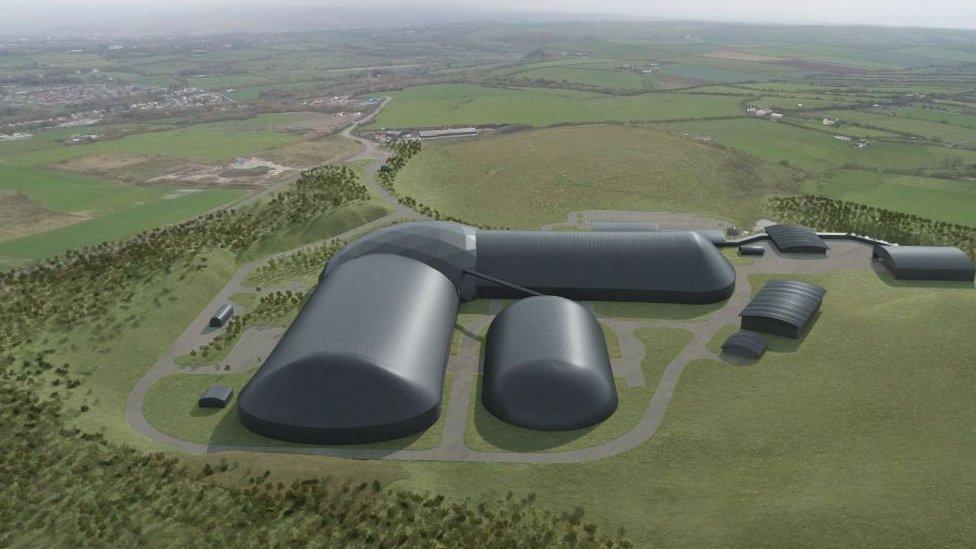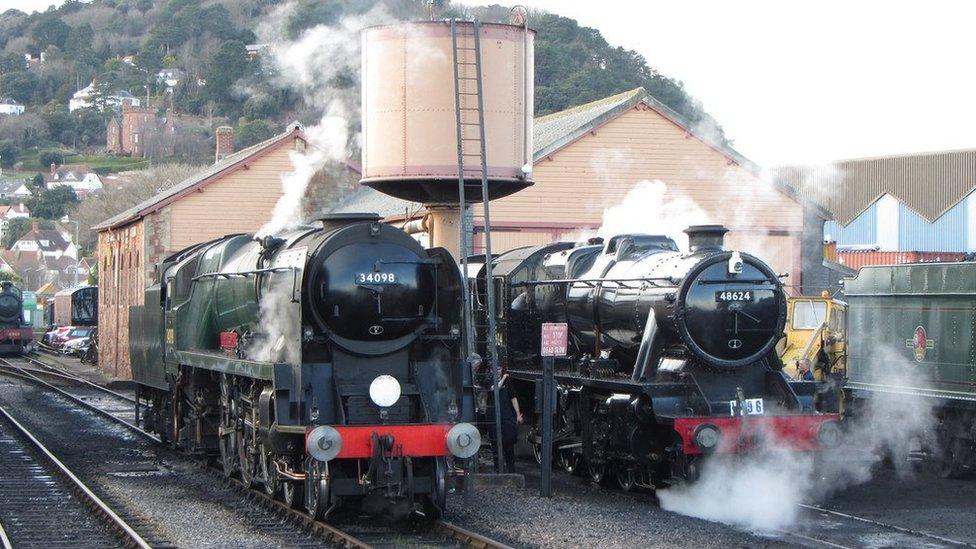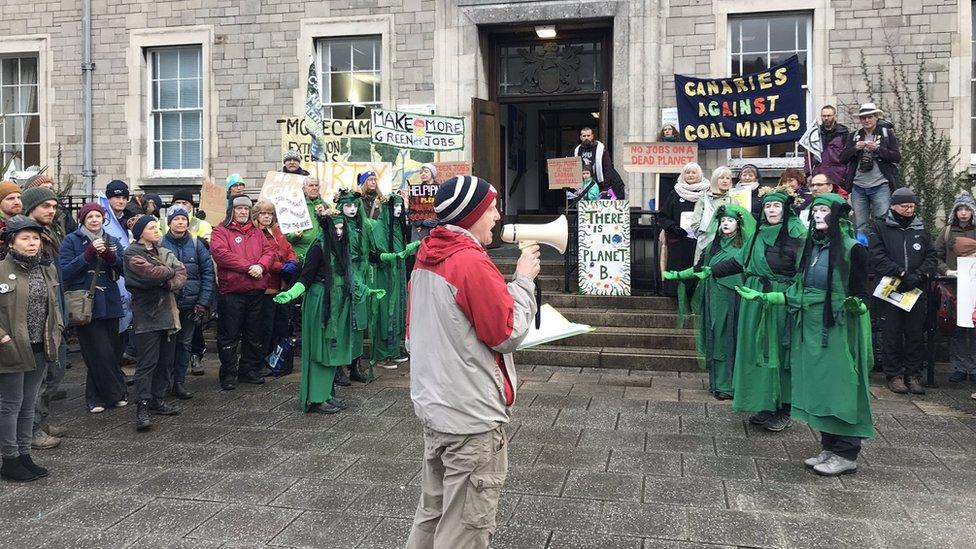Whitehaven coal mine: Government refuses to call in plans
- Published

The mine would extract coking coal from beneath the Irish Sea to be used in steel production
Plans for the UK's first deep coal mine in 30 years can progress after the government decided not to intervene.
Cumbria County Council approved the £165m West Cumbria Mining plan in Whitehaven in October.
The government could have called in the plans for an inquiry, but has chosen not to do so, the council said.
Citing environmental concerns, Westmorland and Lonsdale MP Tim Farron said the decision was a "complete disaster for our children's future".
The former Liberal Democrats leader, who had requested the government call in the scheme, also described it as an "almighty backwards step in the fight against climate change".
Allow X content?
This article contains content provided by X. We ask for your permission before anything is loaded, as they may be using cookies and other technologies. You may want to read X’s cookie policy, external and privacy policy, external before accepting. To view this content choose ‘accept and continue’.
The mine, which will remove coking coal from beneath the Irish Sea for the production of steel in the UK and Europe, has been approved twice since 2017. However, the council needs to consider it again after the mining firm said further analysis of the coal meant it could "improve" the plant's design.
West Cumbria Mining claims it would create 500 jobs, external and pay into a community fund for 10 years.
A council spokesman said: "We have been informed that the [government] has decided not to call in the decision on the planning application for West Cumbria Mine.
"The council will now work with the developer to formalise the legal planning obligations, referred to as a section 106 agreement.
"The section 106 agreement will need to be finalised before the council can formally give the development permission."


People concerned about the climate are dismayed at the decision not to block the mine.
The prime minister has made several recent speeches expressing his determination to shift away from fossil fuels to protect the planet, and this decision points in the opposite direction.
The government doubtless has in mind the number of jobs that may be created by the mine in an area of high unemployment and it has to find policies that will tackle problems across society, not just the environment.
But environmentalists say jobs should be generated by investing in clean energy and building a greener future, not by industries that harm the atmosphere.
They warn that Secretary of State Robert Jenrick's decision not to call the plans in hugely undermines the UK government's claims of global leadership on the climate challenge.

Friends of the Earth spokesman, Tony Bosworth, said the refusal to call in the decision was "climate-wrecking".
He added: "Allowing coal to be extracted from this proposed mine for over a quarter of a century completely undermines the government's credibility on the climate crisis.
"Global leadership on the climate emergency means leaving coal in the ground, where it belongs."

Extinction Rebellion Cumbria staged a "climate change crime scene" outside the council in October
More than 2,300 people objected to the plan along with campaigners including Friends of the Earth, Keep Cumbrian Coal in the Hole (KCCH) and the World Wide Fund for Nature (WWF).
Extinction Rebellion Cumbria protesters staged a "climate change crime scene" outside a council meeting in October.

Follow BBC North East & Cumbria on Twitter, external, Facebook, external and Instagram, external. Send your story ideas to northeastandcumbria@bbc.co.uk, external.
- Published5 January 2021

- Published3 October 2020

- Published13 February 2020

- Published7 February 2020

- Published2 November 2019
